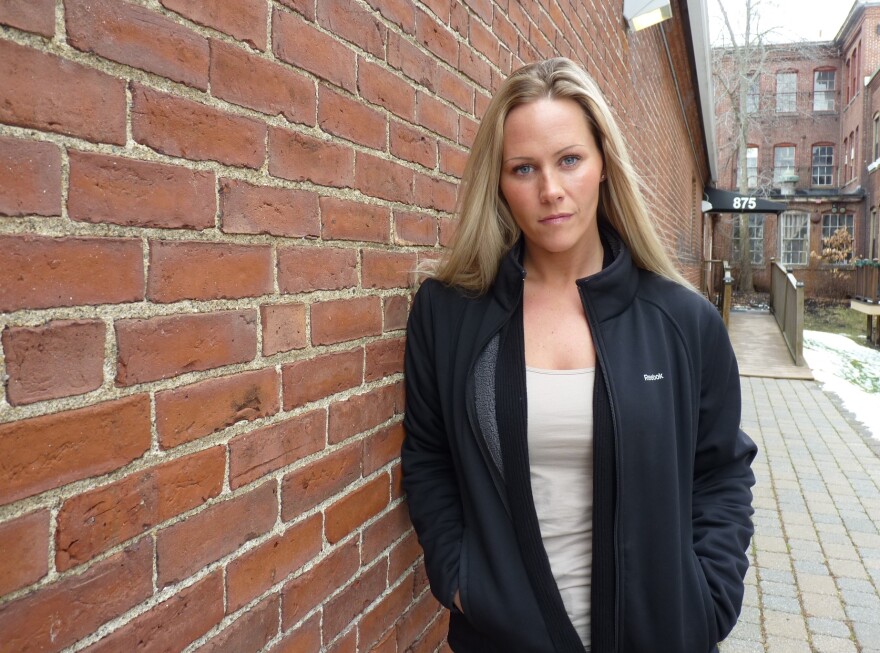Following promises made during the campaign, Republicans are taking steps to repeal the Affordable Care Act. What will replace the health care law, and which provisions will be spared, is still very much a question in Washington. In New Hampshire, that’s causing unease for many in the substance abuse treatment community.
The Affordable Care Act, also known as Obamacare, made two distinct changes to treatment of mental health and substance abuse. First, before the law, insurance companies, as well as Medicaid, were not required to offer substance abuse treatment as part of their policies, and as a result, most didn’t. That changed when addiction and mental health services became what’s called an “essential health benefit.”
Second, the health law expanded who could enroll in Medicaid by loosening the eligibility requirements. In New Hampshire, that meant about 50,000 more people came onto the rolls, all of them now with access to counseling and other treatments.
“There is no other disease that was as impacted by the Affordable Care Act as addiction,” says Tym Rourke, director of substance use grantmaking at the New Hampshire Charitable Foundation, and chair of the Governor's Commission on Alcohol and Drug Abuse Prevention, Treatment, and Recovery.
“Before the Affordable Care Act, there was really limited to no insurance coverage for substance abuse or mental health services. And what coverage did exist, had significant limitations on access and eligibility.”
Now, with Republicans taking steps to dismantle the massive health care law, those substance abuse benefits, as they are currently designed, face an uncertain future.
Senator Maggie Hassan, a Democrat and backer of the health law, tried to get clarity on what a replacement plan may look like during her questioning earlier this month of Tom Price, President Trump’s nominee to lead the Department of Health and Human Services.
In her remarks, Hassan highlighted the need for enhanced substance abuse coverage, as states including New Hampshire struggle with an opioid epidemic. She tried to illustrate her point by sharing the story of a local woman.
“Thousands of New Hampshire citizens are getting the opportunity to get treatment for substance use disorder,” Hassan said. “And I talked with one of them last week, a woman named Ashley, who had had an addiction for almost a decade.”
Hassan didn’t go into further detail of Ashley’s experience during the hearing, and politician will often name-check a specific constituent who is impacted by a policy. Ashley, whose last name is Hurteau, was willing to talk in detail with NHPR about why having health insurance impacted her addiction. She grew up in Somersworth, and started using drugs during high school.
“I first started drinking and then I started smoking pot, and then cocaine, ecstasy, and acid, were the first things I did. And then I did my first opiate at the age of 18,” she said.
Hurteau today is 32, outgoing, with straight blonde hair. She describes in unflinching detail what the last ten-plus years have been like.
“When I started doing heroin, my life destructed very quickly. I wasn’t able to maintain anything. I lost my job super quick, my apartment, my child.”
She describes a constant cycle of heroin use and incarceration, bouncing around from couch to couch. She and her husband stole to support their habit, robbed, and forged checks. She lost custody of her son, and then things proceeded to get only worse.
“What should have been my rock bottom wasn’t even a rock bottom. I woke up next to my husband dead, and still continued to use, and as much as that is an emotional bottom for me in sobriety, that wasn’t enough to get me clean. And that’s the powerlessness of addiction.”

After her husband’s overdose, Hurteau continued to shoot heroin for months. It wasn’t until after she was arrested for shoplifting in December, 2015 that things began to turn around.
As she sat in jail, two things happened. First, she went through a painful detox, and second, she got a spot in the Strafford County drug court program, a kind of alternative sentencing option. Corrections administrators helped her enroll in Medicaid, and then with health insurance, she was accepted into an intensive counseling program. After years of wanting to quit, she says she finally had the tools and support to do it.
“And, you know, honestly, it may seem crazy, right, to narrow it down to just insurance based off of my great opportunity to stay sober. But the truth is, if I didn’t have it, what would have been there for me? What would have been out there for me? I have no idea. Another prison sentence? Another incarceration, because that’s what my past has shown,” she said.
A year later, Hurteau is now working full time at Safe Harbor Recovery Center in Portsmouth, she’s having regular visits with her son, and is buying her own health insurance. So for her, ObamaCare has been a success. But even supporters of the law acknowledge its shortcomings, including higher costs and limited access in certain communities.
For substance abuse advocates, though, tossing out the whole measure risks losing the gains made in treatment.
Tym Rourke from the Governor’s Commission on Drug Abuse puts the risks of repeal this way: “The entire system falling apart. And I know that sounds overly dramatic, but everything that has been done in New Hampshire between the expansion of Medicaid, the redeployment of existing resources, has been predicated on the fact that insurance now covers the cost of treatment.”
Mental health and substance abuse clinics used to rely on a patchwork of grants and donations to keep their doors open. In New Hampshire, that resulted in a lack of capacity as the opioid epidemic emerged. With ObamaCare in place, clinics are able to bill insurers and Medicaid for the treatment they provide. That steadier money has resulted in an expansion of services. At Seacoast Mental Health Center, a new outpatient program launched last year, serving more than 500 people in its first six months.
“You know, there were two obituaries in the paper today of young male adults...so we know that people are dying from substance use disorder issues, and we have, I think, a responsibility to try to sustain services that help to keep them alive and help them recover,” said Jay Couture, CEO of Seacoast Mental Health.
It remains unclear what the GOP replacement for ObamaCare will look like, but the most likely outcome, on the Medicaid side at least, is block grants. Under that plan, each state would get a chunk of federal money, and then be allowed to use that money on a Medicaid program of their own design. That idea has support from local Republicans. Governor Chris Sununu recently wrote a letter to congress asking for more flexibility in health care, and State Senator Andy Sanborn--one of the most vocal opponents of the health law since its inception--also thinks the current model has done little to improve substance abuse treatment.
'When you have to look at it antiseptically, I don't think Medicaid expansion has helped us.'
“Ever since we passed Medicaid expansion, deaths have gone up, not down. Ever since we passed Medicaid expansion, the number of people that have overdosed has gone up, not gone down. Clearly when you have to look at it antiseptically, I don’t think Medicaid expansion has helped us,” he said.
Sanborn argues the state--without federal strings attached--can craft a better, cheaper, more robust system for treating residents with substance abuse and mental health needs. And with the GOP firmly in control in Washington and Concord, local officials may get that chance.
“We clearly want to make sure that people who need help get help. We want to make sure that people who are sick can get the medical attention that they need. So the wailing and gnashing of teeth that Republicans are trying to blow up the world is disingenuous at a minimum.”
But what the final shape of an ACA replacement will look like, and what happens during the transition period, has substance abuse advocates concerned.
“There really could not be a worse time to consider a rollback in health care policy on this issue, probably in the history of the United States given the opioid epidemic,” says Tym Rourke. “There could not be a worse time.”







